One of sport's greatest warriors Nadal eventually runs out of time
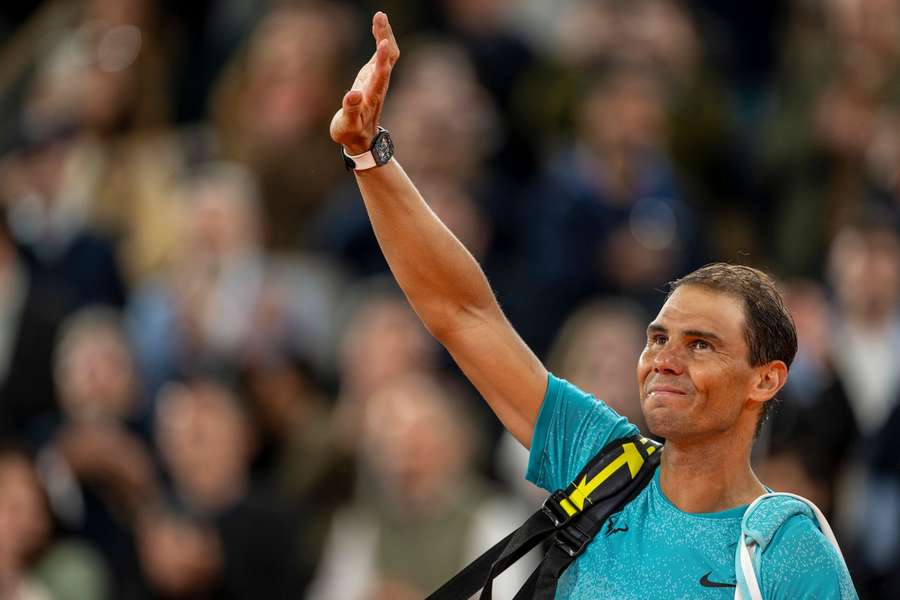
Everyone knew that Nadal's time in tennis was dwindling. The Spanish great announced in 2023 that, in all likelihood, 2024 would be his last hurrah.
So after a stop-start year, which included a first-round defeat at his beloved French Open and a second-round exit in the Olympics at the same venue, Nadal finally made the official confirmation that his body had nothing left to give - he was hanging up his racquet.
No more dusting the clay off his sweaty body after another French Open triumph.
No more fiddling with his shorts and tucking his hair behind his ears before a serve which pushes the 20-second time limit between points.
No more placing his water bottles in inch-perfect positions as part of his superstition.
No more Rafael Nadal, 'The King of Clay'. No more the 14-time French Open champion, the man who dominated on the dirt in such an irresistible, unparalleled manner.
Sadness washed over the sport. He was warmly celebrated by his peers, but also by stars from other fields. Novak Djokovic, Roger Federer and Carlos Alcaraz all paid tribute, as did football icons Cristiano Ronaldo and Lionel Messi.
Nadal is a 22-time Grand Slam winner, two-time Olympic gold medalist, 36-time Masters champion and a five-time Davis Cup victor.
With a resumé that is bettered by only Djokovic in the men's game, Nadal's name is forever etched in history. An iconic athlete whose greatness transcended tennis, his presence in the game will be oh-so sorely missed.
But there is more to Nadal than just numbers. A career defined by sheer willpower, unrivalled heart, and an unabating attitude to play every point like it is his very last.
However, it was also a career plagued by setbacks and injuries. In his early years, he suffered from tendinitis, and as he got older and more brittle, his foot and hip began to let him down.
He missed over 15 Grand Slams during his career due to injuries, while also pulling out during major tournaments on several occasions.
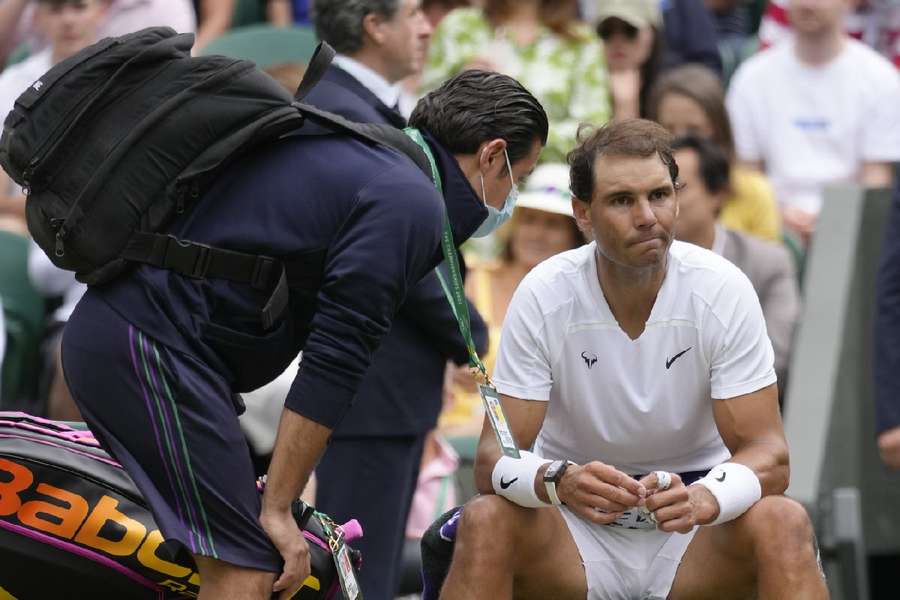
Yet perhaps this is what made every victory even sweeter.
In 2021, Nadal picked up a serious left foot injury which saw him miss the latter half of the year.
It wasn't clear when he would return, and if he did, what state he would be in. It seemed unlikely that he would ever compete at the highest level anymore.
But Nadal arrived back for the Australian Open at the start of 2022, and he looked in surprisingly good shape, marching to the final, where Daniil Medvedev stood in his way.
Nadal went two sets down against Medvedev and was being outplayed. He was unable to break down the defence of the Russian wall.
Yet somehow, Nadal pulled a rabbit out of his hat. Dubbed 'the Miracle of Melbourne', the Spaniard fought back from the very brink, defeating Medvedev, 2-6, 6-7, 6-4, 6-4, 7-5 in five hours and 24 minutes - the second longest Grand Slam final.
After all the doubts about whether he would ever return to the top, it proved to be a comeback within a comeback. At the very place where he had suffered the most gut-wrenching final defeats of his career, Nadal conquered all those demons.
He would go on to win his 22nd and final major at the French Open a few months later. Also a remarkable feat, as it was later revealed that he had to have injections in his foot during the tournament, so he had no feeling in it whatsoever.
Little did he know that at the following Slam, he would pick up the injury that proved to be the final dagger in his career at the very top level.
In his Wimbledon quarter-final with Taylor Fritz, Nadal suffered an abdominal injury. Yet despite being physically hampered and clearly struggling, he still somehow battled through to win 3-6, 7-5, 3-6, 7-5, 7-6(4).
In some ways, it was fitting that that was the final epic of his career. Bloodied and bruised but finding a way to come out on top has been the story of the great man's career.
In 2009, Nadal beat Fernando Verdasco in one of the greatest matches of all time in the semi-final of the Australian Open. It lasted five hours and 14 minutes.
Two days later, he came out in the final and beat a far fresher Roger Federer in four hours and 23 minutes. Another all-time classic.
He was bloodied and bruised. But still came out on top.
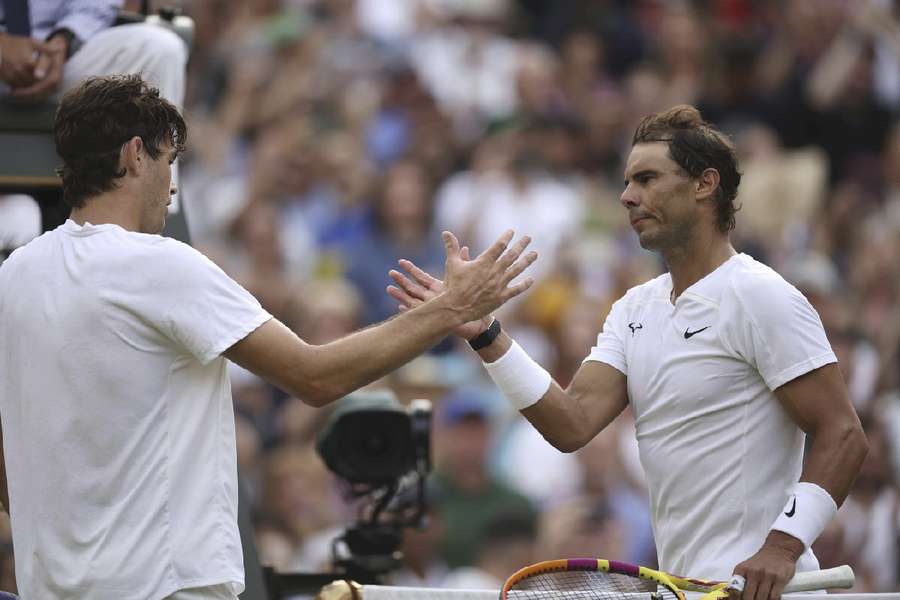
Following his victory over Fritz, he went on to withdraw from the tournament, and we haven't seen the same Nadal since.
Father Time caught up. Whether it is the body breaking down or simply losing a step or two, it happens to everyone.
In the final set of his singles career, Roger Federer was bageled (6-0) by Hubert Hurkacz. In Usain Bolt's final race, he broke down halfway, pulling up with a hamstring injury. Legendary boxer Muhammad Ali lost a 10-round unanimous decision to Trevor Berbick in his last fight.
Look at the position Djokovic finds himself in - tennis' very own Superman. His aura of invincibility no longer exists. Gone are the days when his mere presence would win him titles. Now he must accept that he is playing second fiddle to Jannik Sinner and Alcaraz - 14 years and 16 years his junior respectively.
In typical Nadal fashion, the 38-year-old turned down the chance to have a goodbye ceremony at Roland Garros this year, in the hope that maybe, just maybe, he might be able to keep Father Time at bay a little longer.
But if he can't, then I guess nobody can.
The vulnerability and despair shown by Nadal during his 23-year career made him more relatable than his great rivals Roger Federer and Novak Djokovic.
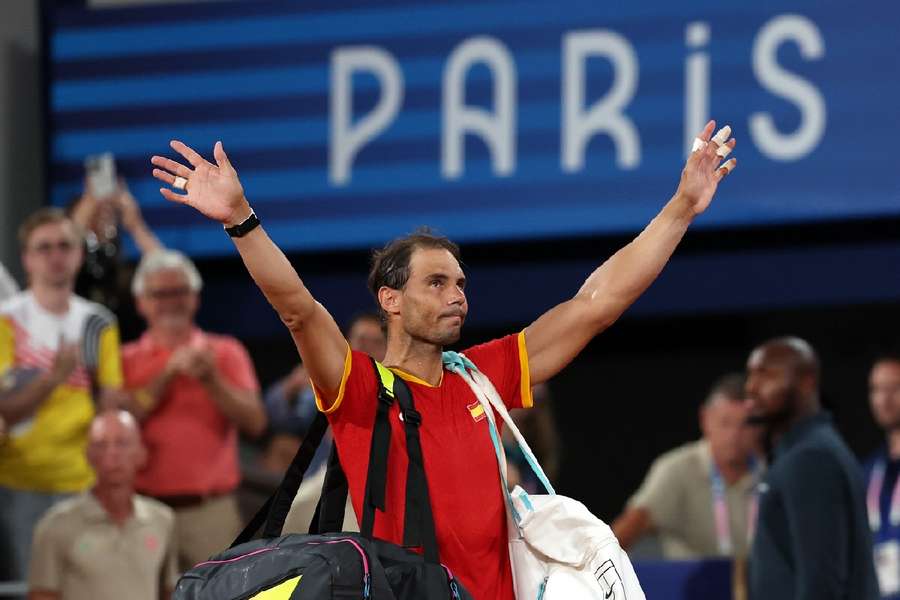
Federer possessed a God-given talent, moving around the court like a ballet dancer, making a gruelling sport look so easy without a single bead of sweat forming on his forehead.
Whereas Djokovic has an unquenchable thirst to be the very best. Brutal and obsessed, he was a master at going to the darkest places within himself to win. A freak of nature, the Serb was a killer on the court.
But Nadal, he was just like you and me. He wasn't born with the natural gifts of Federer and he didn't possess the cold-blooded ruthlessness of Djokovic.
He was a once-in-a-generation athlete who hurled himself around the court with sheer desperation. And when he was tired, he looked tired. He sweated buckets as he strained every sinew.
But above all, he was a man who kept fighting to do what he loved, despite all the hardships. He just kept coming back. From the days of being a baby-faced 15-year-old from Mallorca to a 38-year-old father, Nadal made sure he left absolutely everything out there. And really, that is all you can ask for.
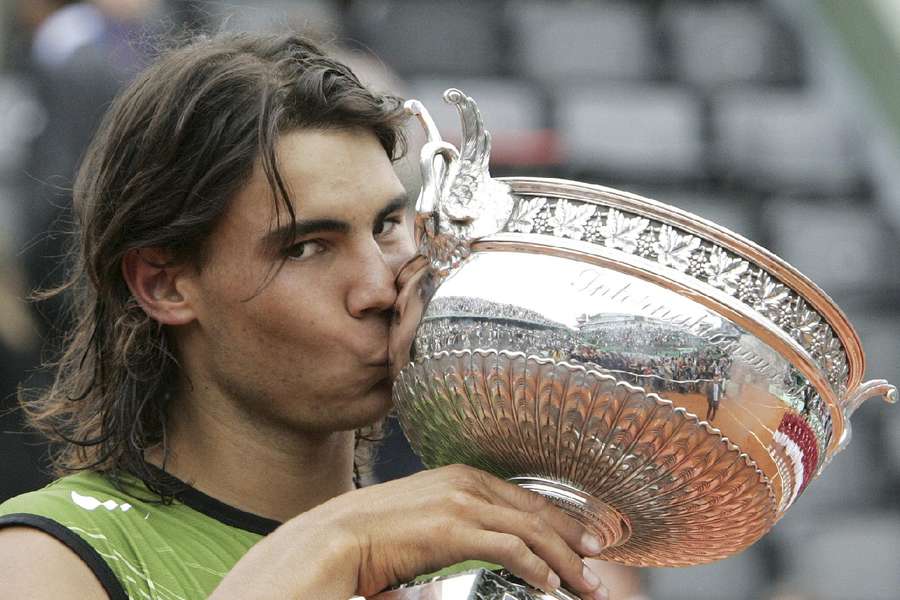
"The doubts give you the possibility to work with more intensity, with being more humble, and accepting that you need to keep working hard to improve things", he said back in 2017.
So as he heads towards the exit door, he will be hoping he can get his dream ending and go out in a blaze of glory, winning his sixth Davis Cup for Spain.
One thing is without question though: it has been the most incredible of rides. The highest of highs and the lowest of lows.
There is certainly no light without dark. And no one knows that better than Rafael Nadal. His place as a sporting immortal is cemented, yet he remains tennis' very own mortal man.

